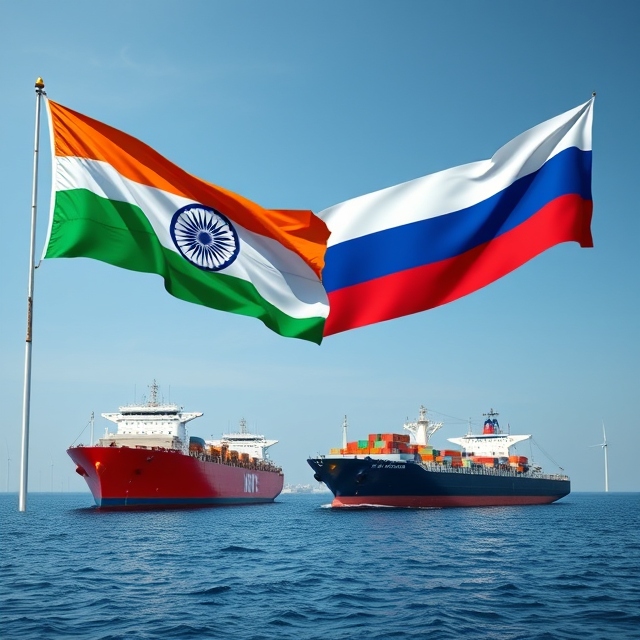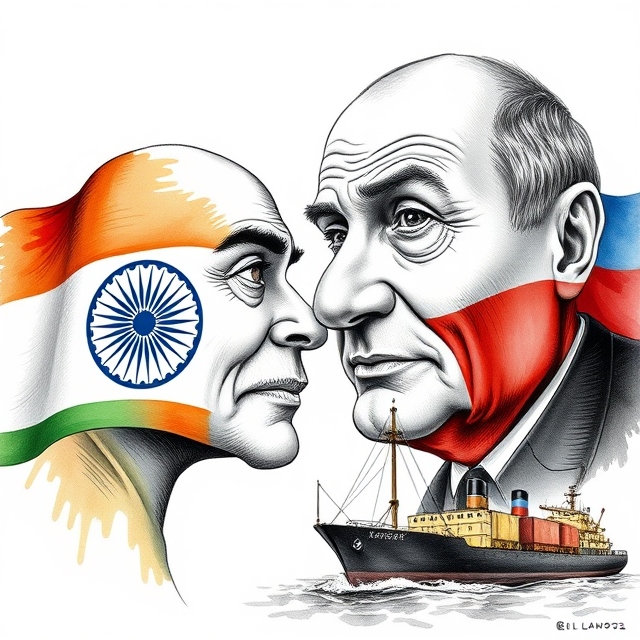
- Strengthened Energy Ties: India and Russia’s trade has surged due to discounted Russian oil amid sanctions, securing affordable energy for India and compensating Russia for its European market losses.
- Defense Collaboration: India remains heavily reliant on Russia for defence equipment, with ongoing negotiations for advanced missile-detection radars aligning with India’s Make in India initiative.
- Economic Diversification: India-Russia trade relations are expanding rapidly, targeting $100 billion, as Indian firms capitalize on opportunities in Russia left by European and American exits.
Russia has always been a reliable geopolitical partner for India, a country that has consistently supported India’s interests. More importantly, as India’s External Affairs Minister S. Jaishankar has noted, one of the defining aspects of the India-Russia relationship is that Russia has never interfered in India’s domestic affairs. This mutual respect has been the foundation of their strong geo-political ties.

Now, both countries are striving to diversify their relationship beyond traditional areas of cooperation. One significant dimension of this partnership is economics. Notably, the ongoing Russia-Ukraine war has played a critical role in transforming India-Russia trade relations. Previously, bilateral trade was relatively modest, around $5 billion. However, this figure has skyrocketed to $50 billion this year, and both nations have set an ambitious target of reaching $100 billion. It is accurate to say that after China, India has become Russia’s second-largest trading partner.
One of the major factors driving this transformation is the geopolitical shift caused by the Ukraine war. Russia has historically considered itself a Eurasian power with strong economic ties to Europe, particularly in the energy sector. European countries heavily relied on Russian energy due to its affordability and availability. However, the war has led to significant sanctions and pressure from the United States on European nations to reduce their dependence on Russian energy. As a result, Russia has lost a substantial portion of its European market, while Europe has faced severe economic challenges, with higher energy prices causing a notable economic downturn.
In response, Russia has sought to pivot toward Asian markets to replace its lost European customers. India has emerged as a key partner in this regard. Among the major developments is a 10-year partnership agreement between India and Russia, where India’s private company Reliance has committed to importing half a million barrels of oil daily from Russia. This agreement is expected to generate $13 billion in revenue for Russia while securing a reliable and cost-effective energy source for India.
Historically, Russia was not a primary supplier of energy to India; India relied more on countries like Iraq, Saudi Arabia, the UAE, Nigeria, and the United States. However, the war has prompted Russia to offer discounted prices for its oil, making it an attractive option for India. The Indian government has prioritized securing energy at the best prices, further strengthening its economic ties with Russia.
For Russia, India represents a significant market. As Russia increasingly establishes its presence in India, it has the potential to compensate for its losses in Europe. Conversely, this shift presents a substantial opportunity for India as well. By accessing the Russian market, Indian companies can replace the European and American firms that exited Russia due to the Ukraine war. This dynamic could further strengthen India-Russia relations.
In conclusion, the India-Russia relationship extends beyond trade. India aims to leverage the growing trade ties to further enhance the already well-established defence partnership. Traditionally, in geopolitics, strong economic relations often lead to stronger military ties. However, in the case of India and Russia, their robust military relationship has paved the way for expanding economic cooperation.
India currently imports over 60% of its defence equipment from Russia. While India is now prioritizing self-reliance in defence production to reduce dependency on Russia and other countries, the defence partnership remains a cornerstone of their relationship. Recently, Indian Defense Minister Rajnath Singh visited Russia to discuss the ongoing bilateral defence relations. Both sides expressed confidence in taking their military ties to new heights.

There are also reports suggesting that Indian delegations visited Russia to negotiate the purchase of $4 billion worth of Almaz-Antey Voronezh radars. These radars have a tremendous capacity for early detection of incoming ballistic missiles, offering India enhanced strategic capabilities. This development could significantly bolster India’s defence preparedness. Furthermore, India has reportedly requested that, if the deal goes through, 50-60% of the manufacturing should occur within India, along with comprehensive technology transfer. This demand aligns with India’s push for indigenous defence production under the Make in India initiative.
If realized, this deal could mark another milestone in the India-Russia military partnership, reinforcing their relationship across both strategic and economic dimensions.
References:
- https://m.economictimes.com/markets/stocks/news/ril-shares-in-focus-on-12-billion-oil-deal-with-russias-rosneft/articleshow/116271765.cms
- https://www.dnaindia.com/world/report-voronezh-radar-in-chitradurga-tracking-missiles-enhancing-india-s-security-3122242
Aayush Pal is a freelance writer on contemporary geopolitical developments. The views expressed in his work are entirely his own.
